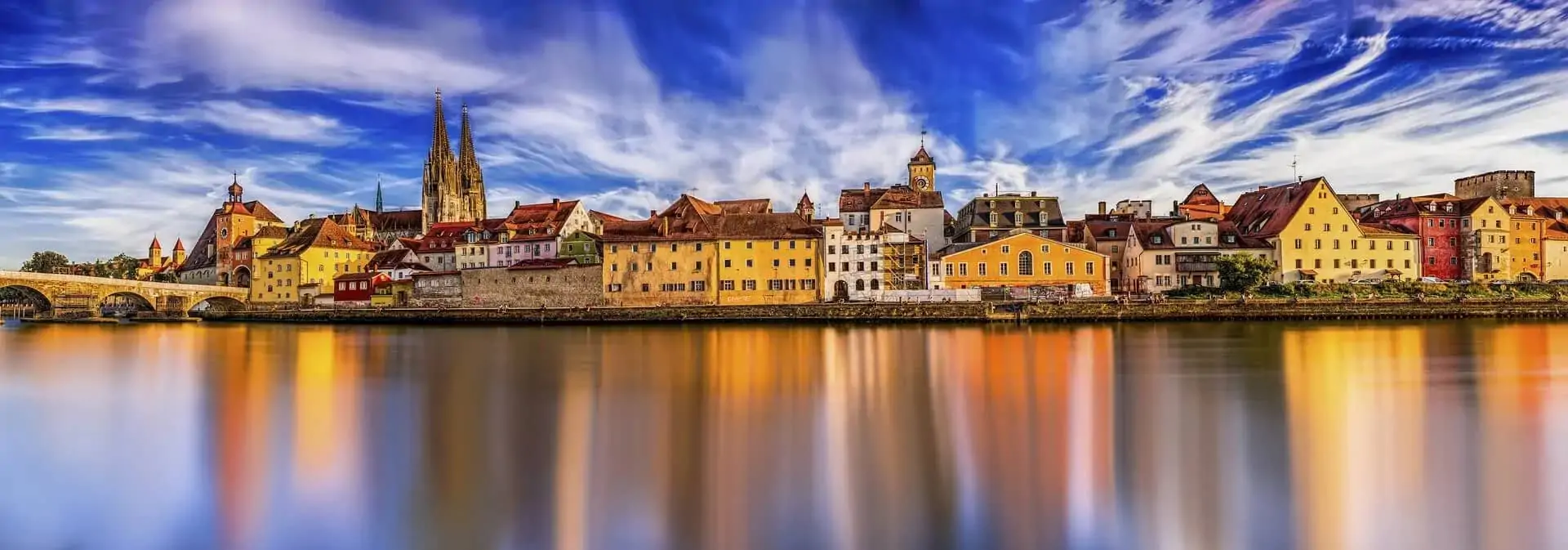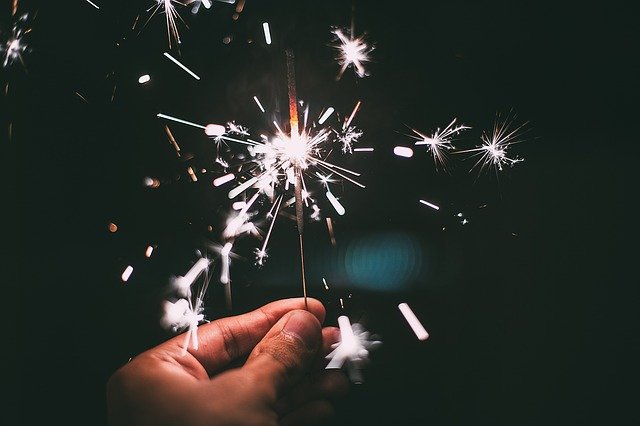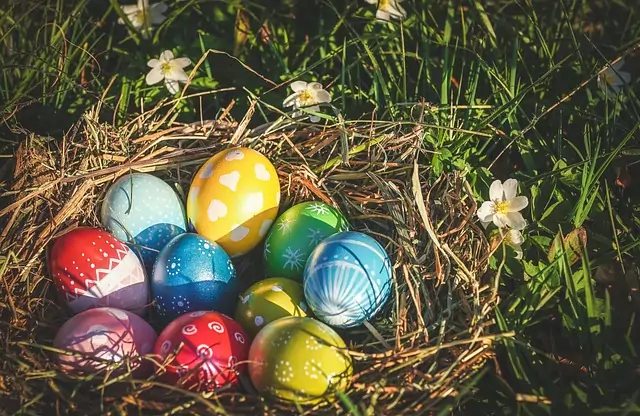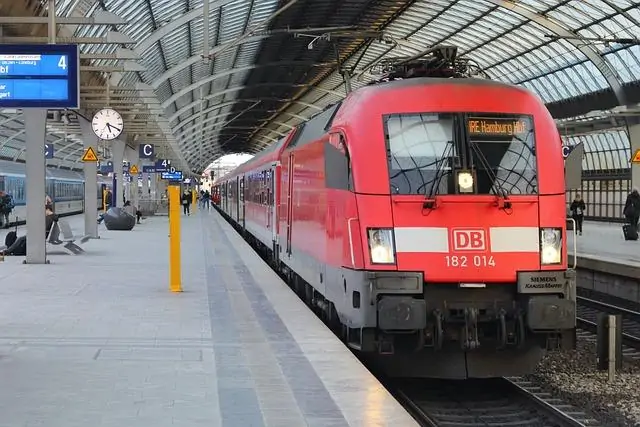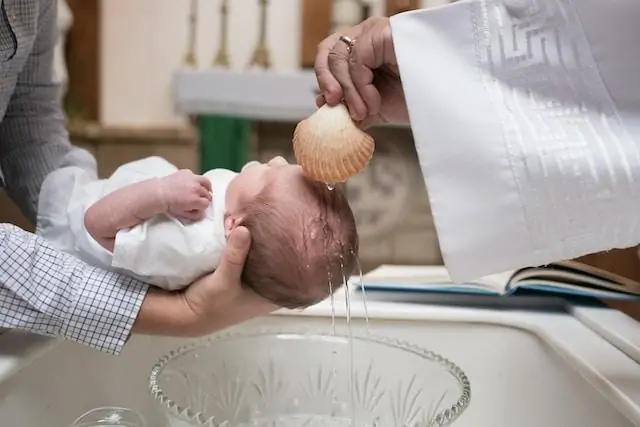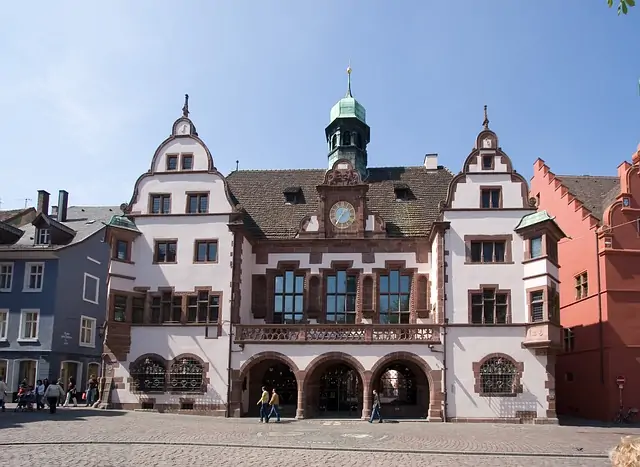This post contains affiliate links. It means that if you click on the links and make a purchase, we will receive a small commission at no additional cost to you. This allows our blog to continue providing you with free information. We only include links and products that we truly believe in. You can read the full disclosure here.
Are you wondering how to celebrate New Year in Germany? And why is New Year’s Eve called “Silvester”? In this article, you will find out all you need to know about New Year’s celebration in Germany. This includes a list of traditional food, drinks, and different celebration activities.
Moving to Germany or new in Germany? Check out our Resources Page for all the help you need!
What do people do on New Year’s Eve in Germany?
Christmas in Germany is family time. Everybody travels back home to spend time with their parents and loved ones at home. For New Year, it is different. People in Germany like to celebrate New Year with their friends and have big parties. In fact, New Year’s celebration usually involves a lot of alcohol.
The celebration typically starts in the evening on the 31 December with a big dinner. And it lasts until the early hours of 1 January. 1 January is a public holiday in Germany. It means that there is no work and most of the shops are closed. Many people spend the rest of New Year’s day quietly. They need to catch up on their sleep after a whole night of celebration.
Read also: 25 Best Dating Apps & Sites in Germany That Really Work – Free and Paid
What should you do once it is midnight?
This is what we do every year: We invite some friends over for a nice dinner at home. Then, we spend time together until midnight and go outside a few minutes beforehand.
We count down the last ten seconds of the year together with a glass of sparkling wine (Sekt). When the New Year arrives, there will be some fireworks in the sky. At this moment, we clink our glasses with each other and anyone nearby. Then, we say “Frohes neues Jahr”, which means happy New Year. We also hug each other. And have a kiss with our partner.
Another common phrase for greeting is “Guten Rutsch”, which means “a good slide”. This is to wish someone a good slide into the New Year.
Afterward, we will enjoy the fireworks outside for a bit. But I cannot stay that long outside as it is usually very cold. And drinking my sparkling wine makes me feel even colder.
So, we will go back inside within half an hour. And continue our party at home. Maybe drink something, or play some games. This can last until the morning, depends on how much energy we have.
Read also: Dating in Germany – Dating a German Guy
Celebrating New Year outdoor in Germany
Before I have kids, I once went to a nightclub in Munich to celebrate New Year. We were there sometime before midnight. And the club was almost empty. Very boring.
A bit before midnight, the music stopped and there was a 10-second countdown. Then, many balloons were released up to the ceiling. That was pretty much it. And the music continued afterward.
The club started to get more crowded half an hour after midnight. And at some point, it was so crowded that we could hardly move anywhere. It was horrible. We had a hard time trying to get back our jackets. There was just no way to walk to the cloakroom. It took us half an hour just to get there and we were so happy that we could finally get our jacket and leave.
Lesson learned:
- I will not celebrate New Year again in a club before midnight. It was a mistake. We should have been outside. It would have been a much better atmosphere with fireworks and some more other people.
- If I want to have a party in a club again, I would go there after midnight. It is because I can then feel the New Year atmosphere first outside with the fireworks. Besides, there will not be many people in the club before midnight anyway.
- If I ever want an after-party in a club again, I will go to a less crowded club.
Anyway, we have kids now and so we always celebrate at house parties instead of nightclubs.
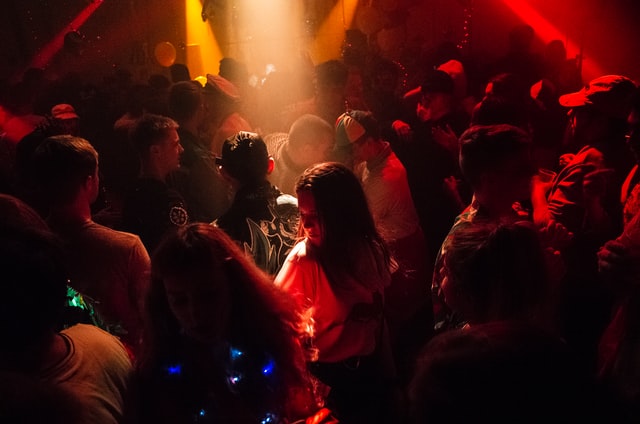
The background of New Year’s Eve
1 January was not always the date for New Year’s Eve. Until around 153 BC, 1 March was the ancient Roman New Year’s Day. In the early Middle Ages, many celebrated New Year on 25th March.
With the introduction of the Gregorian calendar in 1582, most European regions started to use 1 January as New Year’s Day. From 1700 onwards, 1 January was widely accepted as New Year’s Day from other parts of the world like Russia and the UK.
The story behind New Year
Have you ever heard of Rauhnächte? Literally, it means rough nights. In the past, people called the days between 26 December to 6 January the 12 rough nights. It was because the winter was very cold and dark. And New Year’s Eve was in the middle of these rough nights.
People were afraid that the sun would stop working in the coldest winter. So, they lit up wooden wheels and rolled them down from the mountains. They hoped to scare the winter away and bring the sun back to the earth by doing so. For them, the sun was a wheel that rolled around the earth. That was the early form of our firework on New Year’s Eve nowadays.
Other New Year traditions in the past
Besides rolling burning wheels, everything should also stop during New Year’s Eve in the past. For example, people should not work on this day because the sun also stopped working.
And more importantly, no laundry should be done on New Year’s Eve. Back then, people believed that evil spirits were coming out from their hiding places during this winter period. And a god called Wotan was going on a wild hunt on New Year’s Eve. It would be very bad if Wotan got stuck in any clotheslines.
I don’t think people still observe these traditions nowadays though. I once heard that the tradition to ban laundry was there to relieve women’s workload. In the past, women were very busy preparing everything for Christmas. This tradition gave them a break during New Year’s time.
Read also: Believe In Santa – Why I Will Never Do This To My Kids
Why is New Year’s Eve called “Silvester”?
I didn’t know that New Year’s Eve is called “Silvester” until I came to Germany. The name is coming from Pope Sylvester I in the fourth century. He baptized Constantine I (the Roman emperor) and also healed him from leprosy. He was a pope from year 314, and he died on 31 December, 355 in Rome.
With the introduction of the Gregorian calendar in 1582, most European regions accepted 31 December as the last day of the year. That is also why we call our New Year’s Eve “Silvester” nowadays.

How to celebrate New Year in Germany – Fireworks
On New Year’s Eve, we always go out on the street when it is close to midnight. In Germany, you can set off your own fireworks to celebrate the New Year. There are also government-sponsored fireworks in big cities like Berlin, Munich, Hamburg, etc.
The firework tradition comes from the belief that we can scare evil spirits away with loud noises. Traditionally, the noises came from drums and maracas. But nowadays, we also use fireworks to make it loud enough.
Fireworks in Berlin
I used to live in Berlin, which has one of the biggest New Year’s Eve celebrations in Germany. I didn’t spend my New Year’s Eve in Berlin though. Instead, I went on a trip and celebrated it in Prague.
But my friends were celebrating at Brandenburger Tor in Berlin. The largest show of fireworks happens there every year. There are also big street parties with music, food, and alcohol. If you plan to celebrate New Year’s Eve at Brandenburger Tor, you will have to be there very early.
My friends were at Brandenburger Tor already at noon! And they stayed there until after midnight. They didn’t enjoy it too much though. It was cold, extremely crowded, and they were waiting there for too long. But I could imagine that some party lovers would enjoy that.
You can set off your own fireworks
You can buy fireworks in grocery stores from 28 to 30 December. And you are only allowed to set them off from 6 pm on 31 December to 7 am on 1 January.
In my hometown Hong Kong, it is not allowed to set off fireworks privately. So, I was not used to it when I first came to Germany.
I once spent a New Year’s Eve in Munich. And I was shocked that people were throwing firecrackers everywhere on the street. They also threw at each other! Some young people even threw their firecrackers inside the metro station! I was shocked, and scared. It was so dangerous!
In fact, there are many reported injuries caused by fireworks every year. Even some German people are concerned about the use of private fireworks due to safety and environmental reasons.
Since then, I have never celebrated New Year’s Eve in a big city again. I prefer to stay at a house party in the countryside. And I just come outside at midnight to watch some fireworks (from far away).
So, if you plan to celebrate New Year’s Eve in a big city in Germany, don’t be surprised to see people throwing firecrackers everywhere.
Read also: Living in Germany – Big City vs. Small Town

How to celebrate New Year in Germany – Food
Like Christmas, eating great food is an important celebration for New Year. Many German people invite their friends and family to their homes on New Year’s Eve for a big feast together.
What food to eat on New Year’s Eve depends on the regions in Germany and how superstitious people are. Many people in Germany do not eat poultry (e.g. goose) on New Year’s Eve. It is believed that your luck will “fly away” with the goose if you eat it.
New Year’s Eve dinner
Below is some common food you will see at a New Year’s Eve dinner in Germany.
Carp
It is very common to eat carp on New Year’s Eve in Germany. People believe that if you put a fish scale in your wallet, it can bring you wealth in the coming year. It is because your wallet will never be empty then.
To be honest, I find this superstition quite funny. I haven’t tried it because I don’t want my wallet to smell like fish. Maybe that’s why I am never getting rich and I should probably give it a try this year.
Lentil soup
Another food that can bring you wealth in the coming year is lentils. It is common to see lentil soup on the menu on New Year’s Eve. Lentil is a symbol of coins. So, having a lentil soup means that you will not run out of money.
Sauerkraut
Sauerkraut is a fermented raw cabbage that is cut into small pieces. It has a sour taste and is a popular side dish in Germany. Sauerkraut is another common food on New Year’s Eve in Germany. It is believed to bring you money in the coming year (so much money like the cabbage in the pot).
So, it is best to finish your plate but still leave some sauerkraut in the pot. This can ensure that you will still have money left for next year.
Raclette
It is very common to have a raclette meal on New Year’s Eve in Germany. A raclette meal is served using a tabletop grill. You can cook your meat and vegetables on top of the grill. There are small pans that are placed under the heating element. You can use these pans to melt your cheese.
Everyone can cook their own meat, vegetable, and cheese. Boiled potatoes are usually served with a raclette meal. You can eat the potatoes or grilled vegetables with the melted cheese on top.

Fondue
Besides raclette, fondue is another traditional dish on New Year’s Eve in Germany. There are different kinds of fondue, e.g. cheese, oil, or broth fondue. Fondue is a bit like the Chinese hotpot. Everyone can dip his food into a shared pot with a long-stemmed fork.
For an oil or broth fondue, you can cook your meat and vegetable in the shared pot. For cheese fondue, it is common to dip your bread in the pot.

New Year’s Eve dessert
Some people also like to eat something sweet as part of the New Year’s celebration in Germany.
Berliner Pfannkuchen
Berliner Pfannkuchen is a German-style doughnut filled with different fruit jams inside. It is usually eaten for special occasions, like New Year and Fasching/ Karneval. But you can also buy these doughnuts any time of the year.
For New Year’s Eve, there are special fillings with vanilla, chocolate, egg liqueur, or even mustard if you are unlucky. These doughnuts are also called Krapfen in the southern part of Germany.
How to celebrate New Year in Germany – Fire tongs punch (Feuerzangenbowle)

Besides wine, beer, and sparkling wine, people also like to drink fire tongs punch (Feuerzangenbowle) during Christmas and New Year in Germany. It is a traditional drink that mixes hot mulled wine and rum.
Preparing the Feuerzangenbowle is a fun process. You will need a sugar cone. Pour some rum onto the sugar cone and burn it. The melted sugar-rum mixture will then drop down to the mulled wine in the pot.
People usually also put orange, cinnamon, lemon, etc. into the mulled wine. You can prepare all the ingredients by yourself. It is easier to use a Feuerzangenbowle set, which includes the sugar cone and the specialized bowl.
This drink became very popular among German people because of the movie “Die Feuerzangenbowle” in 1944. To celebrate New Year like a German, you can drink some Feuerzangenbowle together with your friends at home or at a party.
How to celebrate New Year in Germany – Fortune-telling
Lead pouring (Bleigießen)

Lead pouring is called Bleigießen in German. It is a fortune-telling method by melting a small amount of lead. However, since lead poisoning is dangerous, German law has banned the sale of lead pouring kits since 2018. But don’t worry. You can use tin or wax as an alternative and it will work similarly.
To stay healthy, you can buy a Zinngieß-Set (tin-pouring kit). The kit includes a spoon, some small pieces of tin, and an instruction. Put one piece of tin on the spoon and warm the spoon up on top of a lit candle. When the tin melts, pour it into a bowl of cold water. The resulting shape of the tin tells you what is going to happen next year.
For example, if the tin forms a heart shape, you are going to fall in love in the coming year. The shape of a triangle means you will have wealth. A flower shape means new friendships will be developed.
Tin or wax pouring is a fun way in Germany to spend time with your friends and family before the New Year.
Reading bible (Bibelstechen)
Bibelstechen is another fortune-telling tradition. You can open a bible and point at a random passage. Then, read the passage and interpret what that could mean for you in the coming year.
Swinging a pendulum
You can ask a question and then swing a pendulum. If the pendulum swings clockwise, the answer is yes. If it swings counterclockwise, the answer is no. If it just swings, then the answer is unknown.
Alternatively, you can also use a band with a ring or a necklace instead of a pendulum.
Tips: If you get a bad answer, you should swing the pendulum counterclockwise quickly. This is believed to swing away from your misfortune and reverse the result to a good one.
Picking gummy bears
As we are in Germany, gummy bears also play a role in the New Year celebration. You can play the gummy bear game to predict your luck in the coming year. Close your eyes and pick five gummy bears randomly from the package. The different colors of the gummy bears will tell you your luck in the next year. For example, a red one indicates love, energy, and power. A yellow one indicates money, career, and success. You can find more different meanings on this website.
Doing a spin
Don’t be sad if you have not gotten any good news from the above fortune-telling methods. You can simply do a spin to reverse a bad omen into a good one. Yes, it is that simple.
How to celebrate New Year in Germany – Other celebration activities
Watch “Dinner for One”
“Dinner for One” is a 17-minute British comedy sketch from 1963. It is about a rich, old lady having a dinner party with her butler on New Year’s Eve.
The sketch is so old that it is only black-and-white. You will find this sketch on television in Germany every New Year’s Eve. It even holds the Guinness record for being the most frequently repeated television show ever. The funny thing is that many British people have never even heard of it before they come to Germany.
Send New Year’s card
Many German people like to send New Year’s cards to each other to wish a happy New Year. I don’t usually do it. But I get one from my boss every year.
Make a New Year’s resolution
Approaching the end of the year is a good time to make a resolution for the next year. It can be anything like learning German, eating a vegetarian diet, doing exercise, working less (or more), etc.
Pin it for later:

Have you celebrated New Year in Germany? What are you doing to celebrate the New Year this year? Leave a comment below and share your experience!
Moving to Germany or new in Germany? Check out our Resources Page for all the help you need!
If you found this article helpful, consider supporting this website by buying me a coffee. Every small donation helps to keep this blog alive. You can also ask me any questions here. Buy me a coffee
